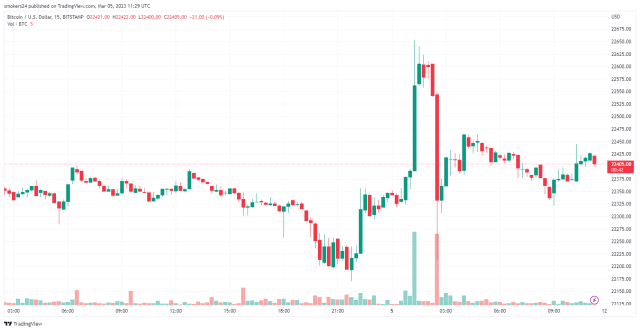The adoption of Bitcoin by retailers is anticipated to rise by 50% over the next three years, per the most recent report. This outcome comes from a poll that 300 payment leaders from 45 countries participated in, conducted by Ripple and the Faster Payment Council.
An Increase In Global Interest In Bitcoin Payments
According to the report, in recent times, blockchain technology has surfaced as a viable substitute for expensive payment systems. In the crypto industry, transaction volumes have skyrocketed. As of 2023, there were over 5.5 million users of cryptocurrency payments in the United States.
Remittances, international business-to-business payments, card payments, and digital payments are the top four applications of cryptocurrency payments. Most of this comes from remittances, as foreign workers use cryptocurrency to send money home to their families without paying expensive transaction fees.
Additionally, acceptance has increased dramatically due to PayPal and Stipe’s growing acceptance of Bitcoin payments. Stablecoins like USDT and USDC have seen a lot of adoption outside of Bitcoin because of their low volatility. Stablecoins are reportedly 80% less expensive for cross-border payments than conventional payment methods.
In the next three years, a significant portion of survey participants—roughly 97%—think cryptocurrency payments will be essential in facilitating faster payments. More than 50% of the leaders polled anticipate that most retailers will use cryptocurrency payments by the end of this year.
Leading The Adoption Race Is The Middle East
Most payment companies predict that retailers worldwide will use more cryptocurrencies shortly, based on data from FPC and Ripple. According to the survey results, as seen in the graph below, 64% of Middle Eastern payment company representatives think that over 50% of retailers will begin accepting cryptocurrency payments in the next three years.

Africa comes in at 51%, North America at 51%, and Europe at 58%. On the other hand, roughly 17% of the representatives from Latin America think adoption will happen during this time. This is true even though both formal and informal businesses in the LatAm region are adopting at an increasing rate.
The Ripple and FPC survey also covered the regulatory issue. Most payment companies surveyed (89%) believe that one “barrier” to adopting blockchain technology as a payment method is the absence of clear regulations in the crypto-asset industry.
But it’s essential to remember that several nations have made progress in regulating the cryptocurrency industry in recent months. El Salvador and Venezuela, for example, have developed extensive legal frameworks for digital assets.
Furthermore, nations worldwide, including Brazil, Singapore, and South Africa, are improving their legal frameworks. According to the survey, businesses’ “optimism” for this market could be a response to consumers’ “growing appetite” for “access and inclusion to broader financial services.”
It also clarified how other blockchain-based payment solutions, such as central bank digital currencies (CBDC), would enhance international payment networks.


























